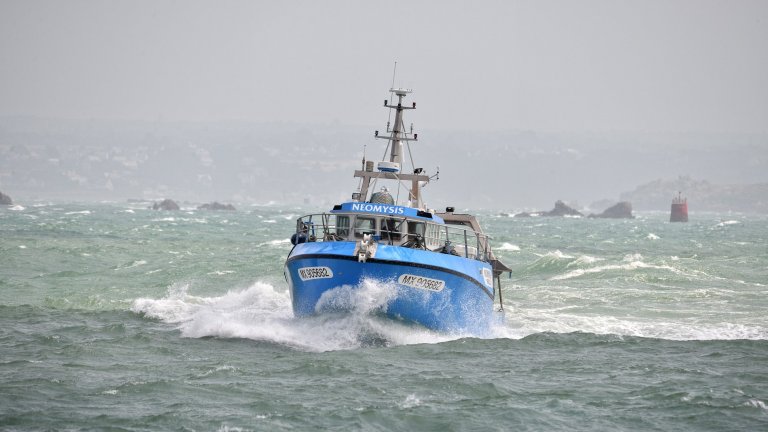
© Wilfried Thomas / SBR / CNRS Photothèque
View the mediaFolder
At a time when the oceans are under increasing threat, French oceanographic vessels are playing a crucial role in understanding the phenomena that affect them and in providing tangible answers.

© Wilfried Thomas / SBR / CNRS Photothèque
View the mediaWhether heads of state, scientists or NGO representatives, from 9 to 11 February 2022 they were in Brest to talk about the role of oceans in the global ecosystem and the world economy. The objective is simple, as President Macron, who will be at this One Ocean Summit, stated: “to protect our oceans”. Some heads of state should also use this opportunity to announce new measures along those lines.
This initiative is vital, as more than 70% of the Earth’s surface is covered by oceans. These are great reservoirs of biodiversity, which are home to millions of species, and currently facing a myriad of unprecedented pressures. Overfishing, various types of pollution, and global warming which cause water to rise and ice to melt are all human interference which weakens marine ecosystems and causes the ocean to lose its role as a natural climate regulator. This is a downward spiral which in turn impacts human activities, and especially a growing proportion of the population living near the coast – but not only them.
The challenge nowadays is both to maintain marine biodiversity at a time where countless species are threatened by the rapid deterioration of their habitat, but also to curb global warming which oceans are both victims and catalysts of.
To fight global warming effectively, it is obviously necessary to understand the various phenomena at work, near the coasts but also in very remote areas – and which are prime study areas. This is why French oceanographic vessels are deployed which survey all the world’s oceans to conduct scientific research, and in particular to try to better understand the effects of global warming on marine species and ocean ecosystems. They are called: Pourquoi pas?, L’Atalante, Téthys II, Neomysis, l’Alis, L’Astrolabe... Recently, the Marion Dufresne left on a new relief and supply mission to the French Southern and Antarctic Lands (or TAAF that includes the Crozet and Kerguelen archipelagos), becoming a real umbilical cord between mainland France and these islands in the southern Indian Ocean.
We are now inviting you to step on board these ships through a selection of photo and video reports.
Our work is guided by the way scientists question the world around them and we translate their research into images to help people to understand the world better and to awaken their curiosity and wonderment.